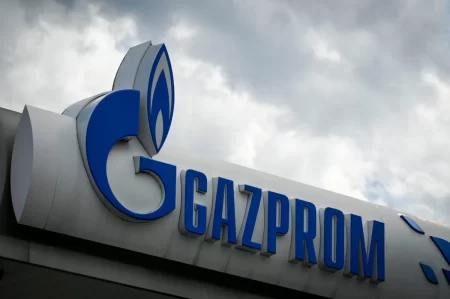29 November 2013, Sweetcrude, Abuja – The success of government’s transformation agenda hugely relies on the progress made in power sector reforms, which in turn depends on developments in natural gas production. At the inception of President Jonathan Goodluck’s administration, reform of the power sector was made a top priority, and thus the Presidential Task Force on Power was constituted. On the basis of the report from this task force, the President set up the Presidential Action Committee on Power and the National Integrated Power Project (NIPP). Recently, the Vice-President requested the Ministries of Finance and Power to come up with appropriate shareholding formulae for the NIPP since the project is jointly financed by Federal, States and Local Governments.
Federal Government’s target is to achieve over 7 Giga Watts (GW) of electricity before the end of the year by injecting about 3.5 GW of electricity into the national grid through the NIPP projects. However, power generation of this magnitude has a direct correlation to aggressive natural gas production, and the oil & gas industry has a lead role to play in natural gas production. This should not be a difficult target to realize, considering that the Nigerian Jurisdiction is regarded as ‘a natural gas province with traces of oil in it’. Therefore, we need to examine what the oil and gas sector is doing to boost natural gas production in Nigeria.
Previous government’s policy of producing natural gas mainly for export is gradually being replaced with one that also accommodates gas production for domestic use (i.e. for cooking and for power generation and manufacturing sectors). There have been notable achievements in gas production so far. Total average gas production increased from 7.7 billion standard cubic feet of gas per day (scfd) in 2011 to 8.24 scfd in 2012, which translates to a 7% increase. There is also a decrease in gas flare to about 10% compared to 30% in 2010.
The Petroleum Minister’s Emergency Gas Supply Plan (2012) has contributed over 230 million scfd for power generation and thus increased national power generating capacity by 30% (4.2 GW of power). The planned addition of 450 million scfd of gas supply for power generation will boost generating capacity by an additional 40% (i.e. to 6 GW of power). Domestic gas supply has peaked at 1.5 billion scfd currently, and a significant proportion is being channeled to the power sector. The current gas supply should support about 5 GW of power generating capacity. Based on realistic projections this is expected to increase to 10 GW by 2015 / 16. Nigerian Petroleum Development Company (NPDC) is being positioned as a dominant gas supplier to the domestic market. NPDC has a producibility of 450 million scfd in the Western Niger Delta. In 2012, the Oredo Integrated Gas Handling Facility contributed 65 mscfd to the gas network.
Domestic gas supply to household and manufacturing sector almost doubled from 185 million scfd to 357 million scfd, and thus has provided feedstock for growth in the nation’s cement sector and over 200 manufacturing companies. This figure continues to grow as the Nigerian Gas Company (NGC) constructs additional pipeline infrastructure. Consequently, gas sales have risen to about 4 billion scfd in 2012 (an increase of about 70%).
A contract has been awarded for the construction of a 120km East-West Gas Pipeline crossing the Niger River, and is expected to be completed by 2015. This pipeline creates a major linkage between the huge gas reserves in the Eastern Niger Delta and other parts of the country. On completion this critical gas pipeline could mitigate the shortfalls in gas supply to the power sector in the Western Region.
The Okapi Power Plant in Delta State, developed by NNPC, is about to become operational. This development represents the largest gas-to-power initiative in Africa. The two phases of the project would on completion generate a combined 1000 mega watts (MW) of power. This project falls under the ‘Clean Development Mechanism (CDM) Protocol of the UN Framework Convention on Climate Change’. On the basis of this power plant, NNPC will generate its first carbon credit in compliance with the Kyoto Protocol and related UN resolutions.
Another important development is the Calabar-Ajaokuta-Abuja-Kano gas pipeline infrastructure expansion. This pipeline will open up gas access to the East and Northern part of Nigeria. A major engineering review of the 1000km pipeline has been conducted and plans are in place to commence execution of the project by early 2014. The Ministry of Finance has committed to issuing Eurobonds of over $600 million to fund this project. By 2015 ending, this project would have established gas access to Abuja, and subsequently Kaduna / Kano, thereby opening up the Northern half of the nation for aggressive industrial revolution.
The foregoing would suggest that the oil and gas industry has achieved a measure of success in developing gas, and future projections are also encouraging. However, going forward, a number of issues have to be addressed; particularly the issue of appropriate pricing of gas for domestic consumption still sticks out and affects independent power initiatives. The choice is between continuing with the current subsidy regime to power plants and industrial firms and permitting the oil companies to produce and sell at market-driven rates. Resolving this matter would ensure that most of the power plants being constructed would be able to obtain gas feedstock for their operations.
In the near future, Nigerians would like to see further progress in the execution of the ambitious West African Gas Pipeline Project (launched by NNPC in 2004) to supply Nigerians with more gas for domestic consumption and to several neighboring countries. On completion, this project will increase government’s earnings from natural gas production. NNPC is also expected to establish strategic partnerships with global gas- producing companies to secure presence in international markets; expand gas-based industries through partnerships to ensure Nigeria becomes a regional hub for natural gas-based products; enhance access to capital and technology for natural gas production; and to promote independent control of joint-venture operations.
*Dr Chijioke Nwaozuzu, a petroleum expert wrote from Abuja. Email: cnwaozuzu@gmail.com. Tel: 070 6874 3617 (SMS only)




